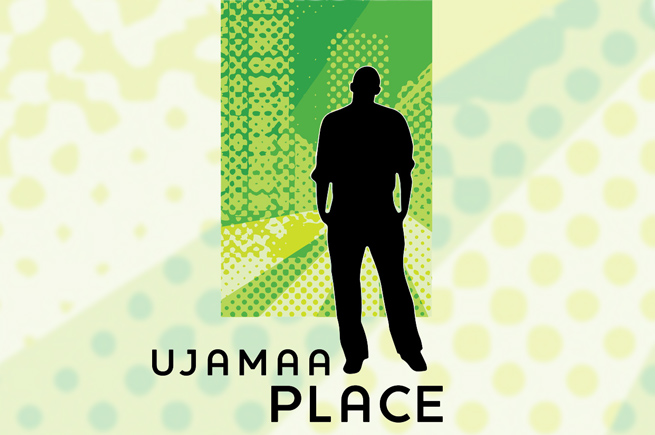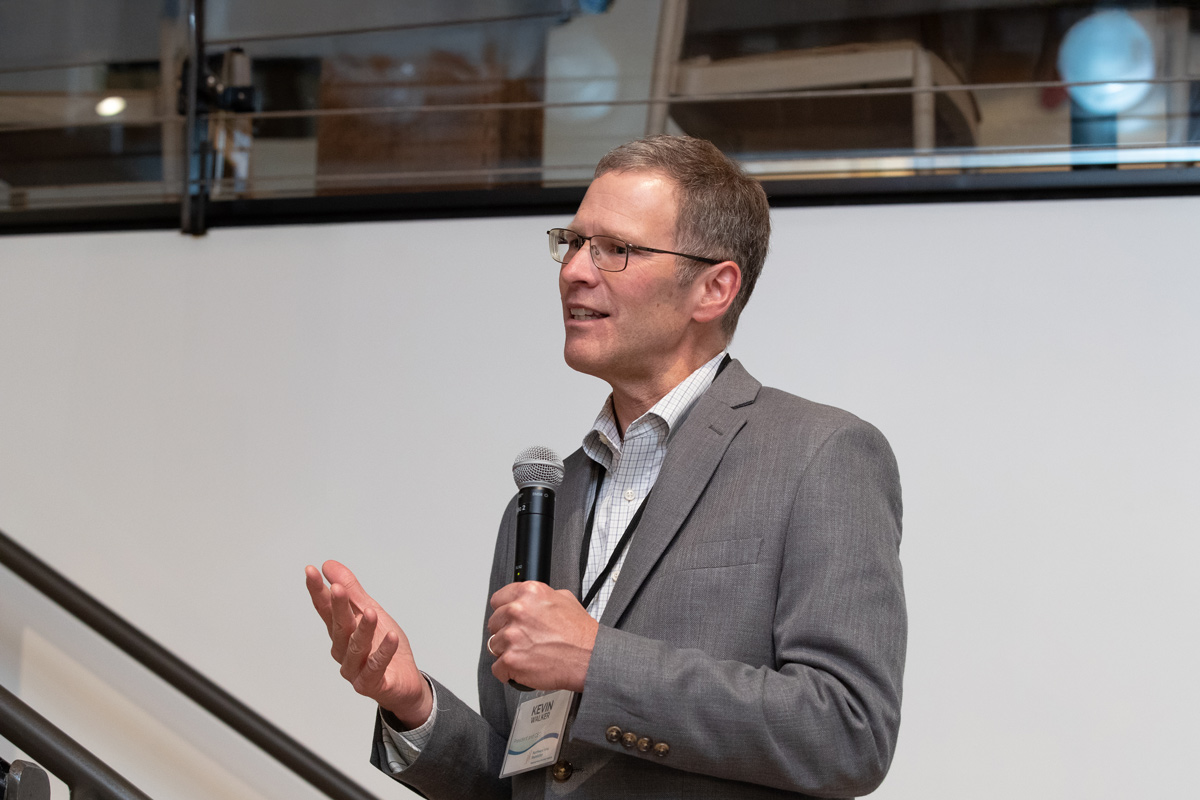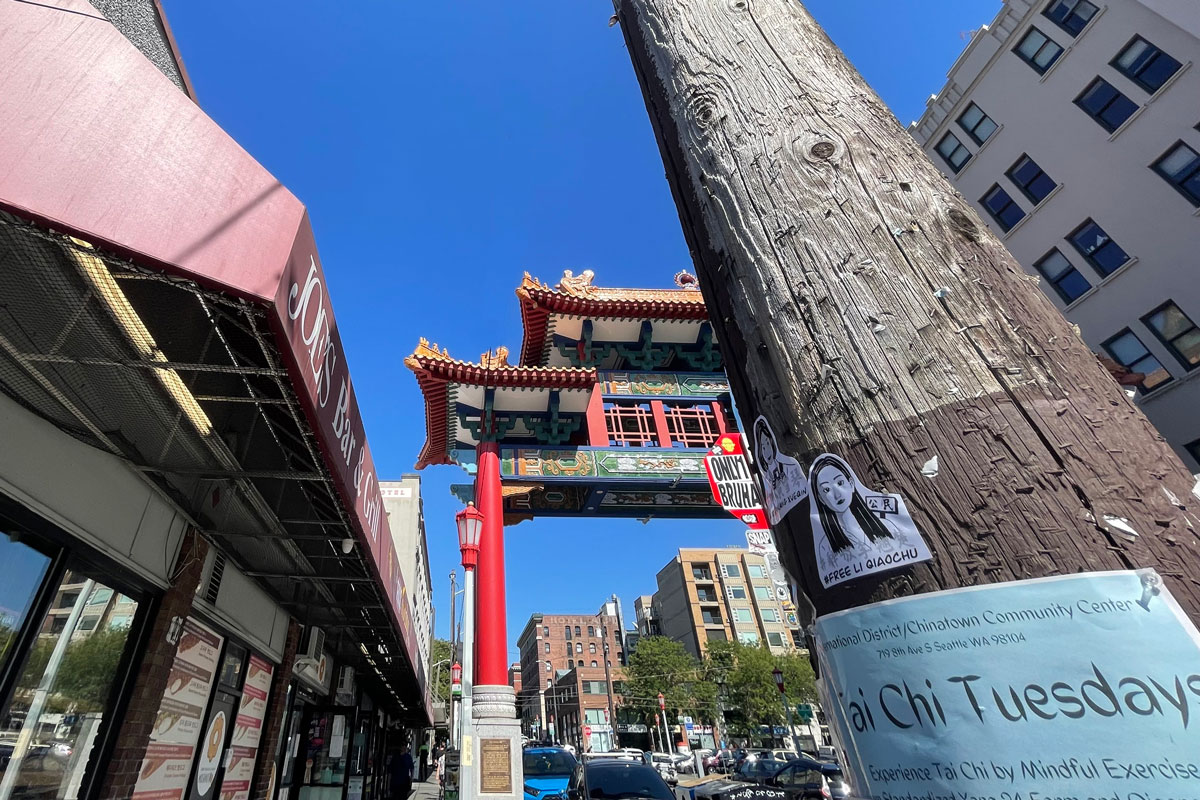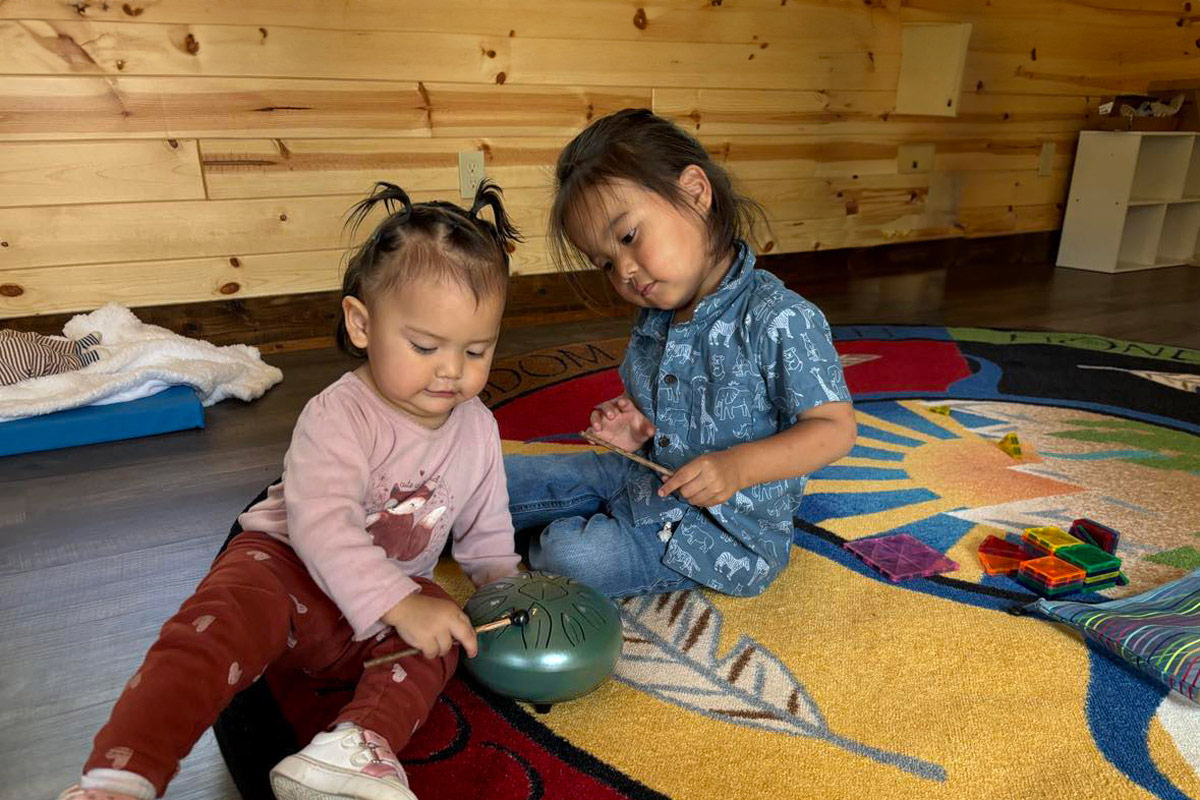Otis Zanders is the president and CEO of Ujamaa Place, a St. Paul, MN–based organization that serves African American men ages 18 to 30.
These young men, referred to as “Ujamaa Men,” are re-emerging from the criminal justice system, one grounded in racial inequality that often exploits poverty and perpetuates recidivism.
They face high barriers, both to landing good jobs that pay living wages and to obtaining the financial means and skills needed to thrive on their own terms. In most cases, they are unemployed, experience homelessness or unstable housing, have unmet needs for mental health or chemical dependency treatment, and haven’t received a quality education. Zanders and his team help these young men empower themselves through education and mentorship, and through unwavering dedication.
Ujamaa Place is also part of a cohort of organizations that make up a Twin Cities community of practice (TCCoP)—an initiative funded through the Foundation’s Financial Inclusion portfolio—that is working together to implement a collective vision for financial literacy and wealth creation in the Twin Cities African American community. It’s a vision that is welcoming and inclusive for Ujamaa Men to develop the financial capability they’ve been denied in the past.
Recently we spoke with Otis about Ujamaa Place and TCCoP. Here are some highlights:
NWAF: What’s the history and mission of Ujamaa Place?
ZANDERS: In November we celebrated the eighth anniversary of Ujamaa Place. The organization was launched in 2010 by a group of local businessmen concerned about young black men ages 18 to 30 who top the disparity charts in our country. They saw many young men who were unemployed or unemployable, homeless or in unstable housing, or coming out of incarceration. The commonality, you might say, is that too many of these young men are on the outside looking in.
“The genesis of Ujamaa Place is the intersection of economics and racism, and our name reflects that. ‘Ujamaa’ is a Swahili word that means both ‘cooperative economics’ and ‘extended family,’ overlapping ideas that echo how we approach helping the population we serve.”
The genesis of Ujamaa Place is the intersection of economics and racism, and our name reflects that. Ujamaa is a Swahili word that means both “cooperative economics” and “extended family,” overlapping ideas that echo how we approach helping the population we serve.
We know from experience that achieving economic sovereignty segues into moving forward as individuals and as a group. In part, our work can be understood as a ground offensive on the war on poverty—beginning by serving individual participants, and then hopefully evolving that change into cultural transformation on a broader scale. So while we serve individuals—an active roster of 150 at any given time, and around 600 men per year—we also, for example, advocate for eliminating implicit bias in the rules that govern incarceration.
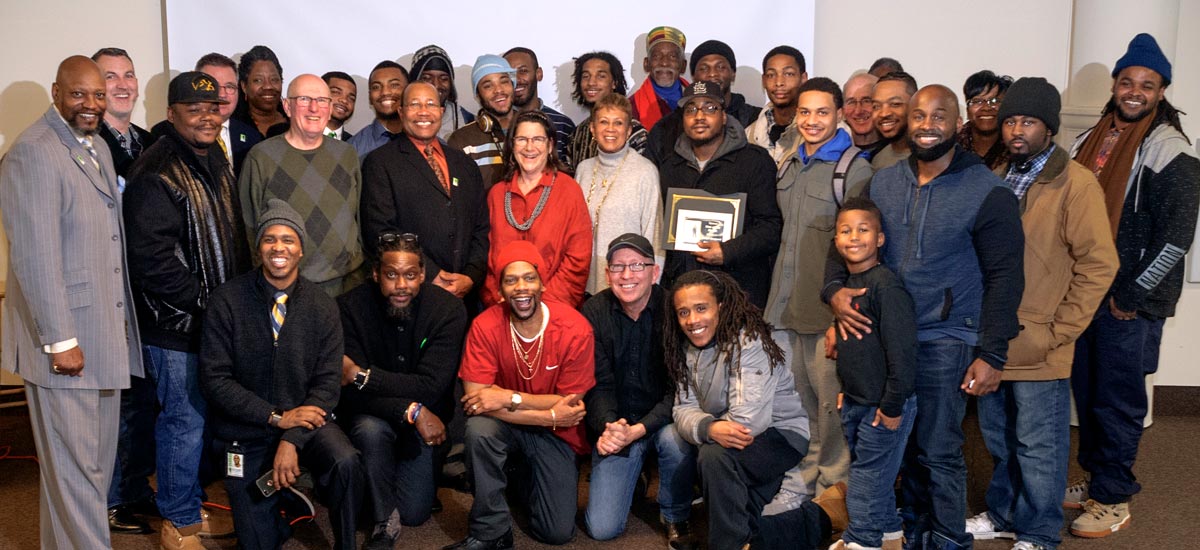
NWAF: How would you describe your approach and programming?
ZANDERS: We emphasize a “reach one, teach one” mentality and a family atmosphere. We refer to our participants as “Ujamaa Men,” a reflection of our dedication to them as individuals rather than statistics. Using a holistic—which is to say a “whole-person”—model, our programming focuses on education, housing stability, employment issues, and physical and financial wellness.
Similar services and programming that have proven useful for other populations don’t sufficiently address the needs of the young men we serve, so we created culturally rich curricula to really connect with them. We use high-context coaching that pairs each Ujamaa Man with a navigator who serves a number of roles: big brother, father, friend, and mentor, among others. Our coaches, many of whom have experienced similar obstacles, are trained to meet young men where they are as individuals rather than using a formulaic approach.
“We refer to our participants as ‘Ujamaa Men,’ a reflection of our dedication to them as individuals rather than statistics. . . . A man who’s been ‘ujamaaed’ is a man who is prepared, despite adverse life experiences and societal and cultural pressures, to be a good employee, father, and renter, and a proud citizen of our Twin Cities community.”
Our work is a bit like an iceberg: Only 20 percent of it is obvious. The other 80 percent is below the surface, which makes it difficult to measure by conventional markers. But when Ujamaa Men feel safe, when they’re working and paying their bills and not incarcerated, then we’ve helped save their lives in fundamental ways.
We like to think we’re working toward populating the Twin Cities with Ujamaa Men. Often we even turn the word into a verb. A man who’s been “ujamaaed” is a man who is prepared, despite adverse life experiences and societal and cultural pressures, to be a good employee, father, and renter, and a proud citizen of our Twin Cities community.
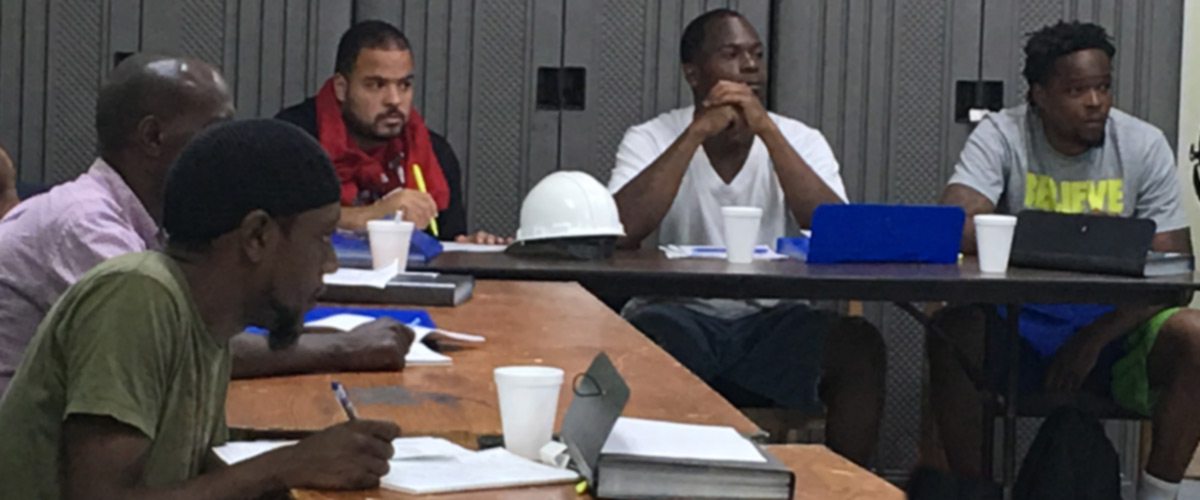
NWAF: Ujamaa Place is part of a distinctive and original collaboration, a Twin Cities community of practice (TCCoP). Will you share your insider’s perspective on that innovative group?
ZANDERS: TCCoP began two and a half years ago. It’s designed as a way to help its six partner organizations (that collectively serve 20,000 individuals each year) promote financial literacy, empowerment, and wealth creation in our service communities through a collaborative partnership rooted in cultural understandings that are transformative and inspirational. We’re strengthening the African American community by building sustainable approaches to stabilization services that address systemic issues that are destroying families: poverty, racial inequity, human rights abuses, homelessness, violence, substance abuse, and more.
TCCoP offers a powerful collegial atmosphere among leaders of nonprofit organizations with resonant missions. Our monthly meetings give us valuable opportunities to discuss a multiplicity of issues that aren’t obvious to others, such as the particular challenges of working with an underserved population. We’re honest with each other about the potential for the “passion fatigue” that comes from feeling responsible for helping individuals and for righting social and economic wrongs.
“TCCoP began two and a half years ago. It’s designed as a way to help its six partner organizations (that collectively serve 20,000 individuals each year) promote financial literacy, empowerment, and wealth creation in our service communities through a collaborative partnership rooted in cultural understandings that are transformative and inspirational.”
We can all benefit from healthy inter-organizational partnerships. TCCoP creates a synergy in addressing the critical issues that perpetuate poverty in the African American communities we serve. For example, all TCCoP partners report program growth in 2018.
Despite the dismal socioeconomic data about African Americans in our country and our community, our TCCoP coalition continues to believe we can leverage the available resources and expertise to help our participants succeed in navigating systemic poverty and inequality.
In addition to the positive aspects of communicating with each other on mission-critical issues within our operations and collaborating when that’s useful, TCCoP offers opportunities to speak in one voice when that will advance our shared cause. For example, I’ve worked with TCCoP colleagues on a Ramsey County law-enforcement task force convened to address criminal-justice issues. I also regularly work on housing issues with TCCoP partners.
To summarize: TCCoP serves as a powerful producer of mission-based knowledge and change. Its six member organizations use shared knowledge and experience to make critical program decisions that address poverty and inequality.
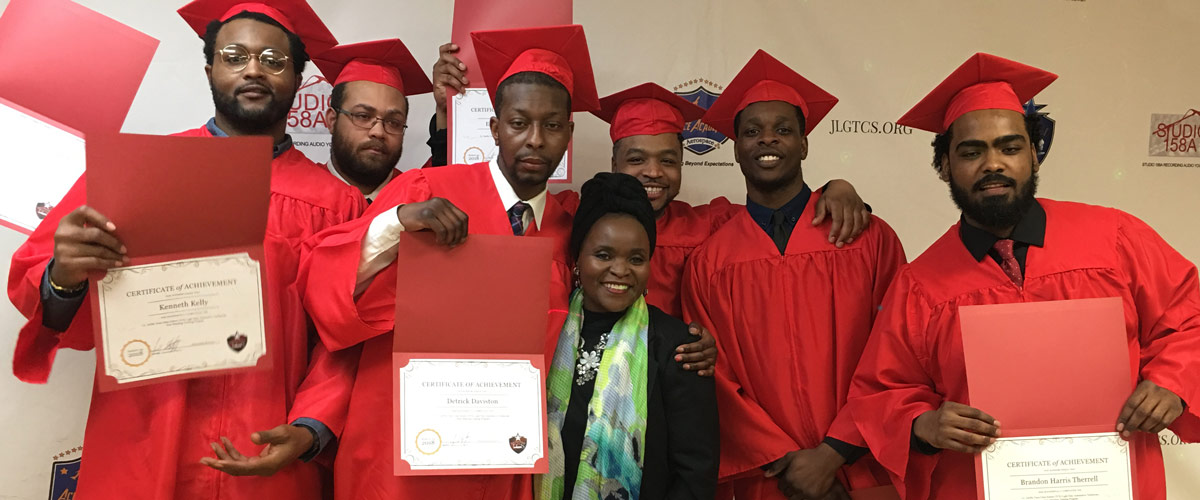
NWAF: Why is financial inclusion so important for the population you’re serving?
ZANDERS: In Minnesota, poverty rates are highest among black and African American, Native American, and Hispanic populations, which have poverty rates three to four times higher than those of non-Hispanic white Minnesotans.
The population Ujamaa Place serves is the most marginalized in society. The extreme economic conditions experienced by young African American men will not self-correct. It requires radical change that begins with education in combination with cultural and financial literacy. Advocating for change at that level requires the shared voices of the kind of brilliant and dedicated leaders who compose TCCoP.
Combining voices and sharing resources—ideas at the heart of that term ujamaa—are powerful tools in addressing the economic crisis in African American communities. By teaching African Americans about the spirit of sankofa (a term from the Twi language of Ghana that means “go back and get it”), we encourage them to remember where they come from as they move forward.
“The extreme economic conditions experienced by young African American men will not self-correct. . . . African Americans have a history of strength, courage, and determination that began well before our ancestors were transported to America during the 400-year transatlantic slave trade. Yet every day we bear witness to the deep, unresolved historical trauma of slavery. And a good portion of that legacy is financial inequity.”
Reminding the individuals we serve that they possess the power to succeed is a critical core of teaching our people to believe in themselves. African Americans have a history of strength, courage, and determination that began well before our ancestors were transported to America during the 400-year transatlantic slave trade. Yet every day we bear witness to the deep, unresolved historical trauma of slavery. And a good portion of that legacy is financial inequity.
TCCoP’s mission requires ongoing hard work among partners focused on eliminating the barriers to economic stability that are amplified among the populations we serve in the Twin Cities. Fortunately, the six organizations of TCCoP each boast a strong track record of stabilization and economic empowerment for the participants enrolled in their programs.

